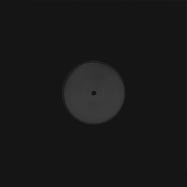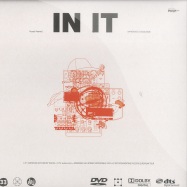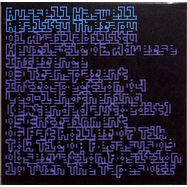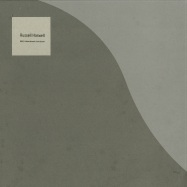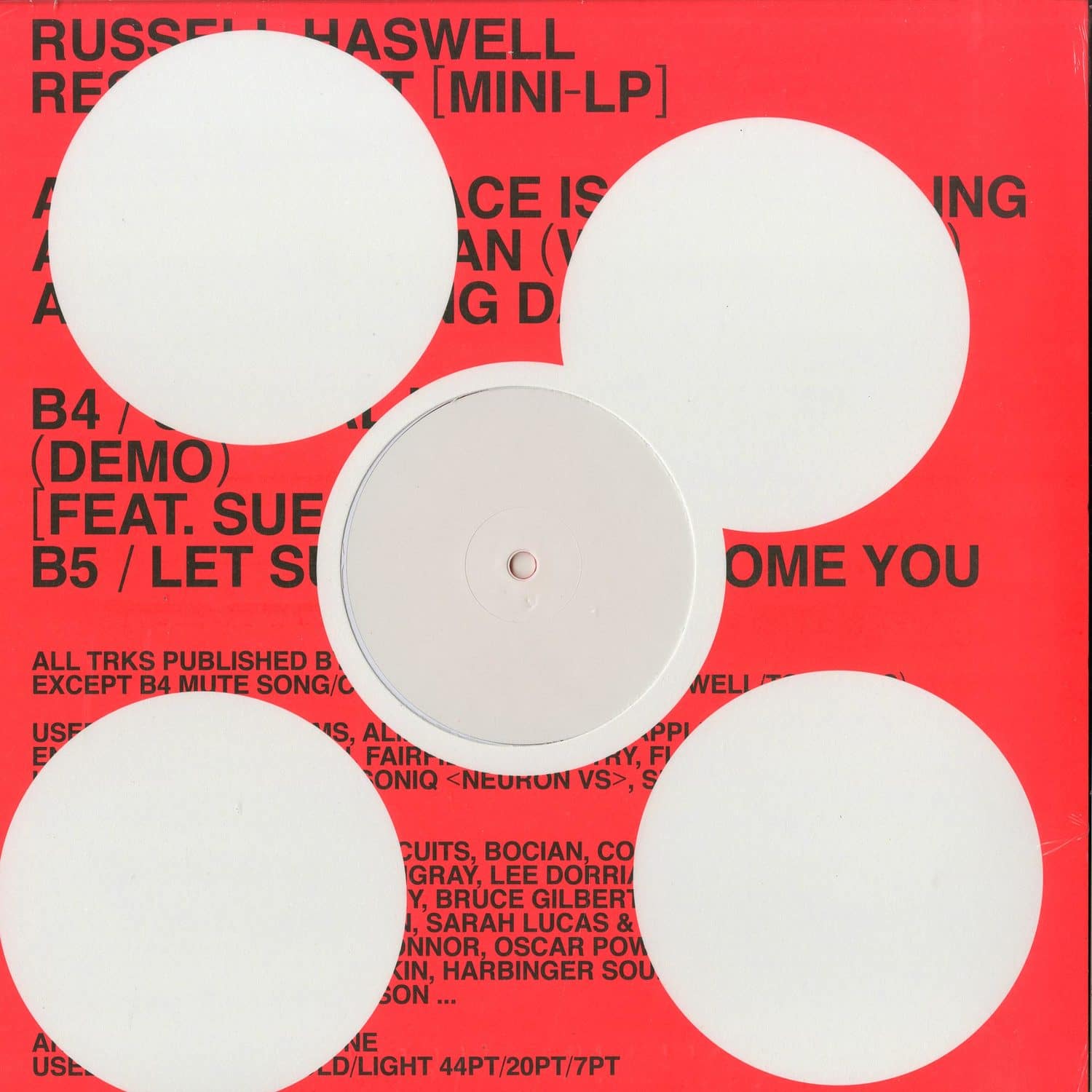


e-mail reminder
If this item in stock, then you will get an infomation E-Mail!Russell Haswell returns to Diagonal with a new five-track mini-album called Respondent. Not quite an EP nor long enough for a full album, this record marks a significant shift in direction for Haswell, who collaborates with a vocalist, Sue Tompkins, for the first time in a career defined by its unorthodoxy that now stretches some 27 years.
Known for his bold and capricious approach to sound and performance, Haswell is one of the worlds leading multidisciplinary artists whose influence reaches far and wide. His uncompromising work has appeared on labels such as Warp, Warner Classics, Downwards and Editions Mego and he has curated shows for galleries including New
Yorks PS1/MoMA and TBA 21 in Vienna. It would probably be quicker to list the notable figures Haswell has not been associated with than those he has. The Serpentine Gallerys curator who never sleeps, Hans-Ulrich Obrist labelled Haswell a National Treasure.
More recently, on his key releases for Diagonal, 2014s 37 Minute Workout and 2015s As Sure As Night Follows Day, Haswell applied rave dynamics to modular synthesis to fashion playfully idiosyncratic tracks that thrill and confound in equal measure. He doesnt set out to be liked hate is a good energy, he says and nor does he consider himself a musician. If I learned anything from the art world, its that I want to polarise people, he says. What Im trying to produce, I dont expect anyone to like it. Ive had so many years of people saying this is shit, fuck you, throwing bottles at me, pulling leads out or shutting my laptop, even pulling a gun on me in Chicago its all part of the story.
Having long been affiliated with luminaries such as Aphex Twin, Autechre, Mika Vainio, and Paul Smith of Blast First, Haswell has never been one to sentimentalise his work he has a huge appetite for disruption and for improvement, for trying to make things better, as he might put it. Curiously then, Respondent finds him looking back, for once, to his teenage years, and reflecting on that period of discovery when he first came across the bands and records and labels the culture that would come to shape him.
Growing up in Coventry in the mid-1980s, hed listen to John Peel and, during his paper round, would flick through the NME and gradually work out that the adverts with the most interesting graphic design usually promised the most interesting music. In this way he discovered 4AD, Factory and Mute, while on trips to the local lending library with his mum hed usually end up leafing through the records and listening to his finds. Here, aged 11, he discovered Xenakis (because it was under X), Cabaret Voltaire and DAF, and at home would devour The Tube and Top of the Pops and whichever sci-fi films and shows were on TV. During his teens he developed an uncannily sharp sense of aesthetics which has held him in good stead ever since.
Haswell says Respondent is influenced by these formative years when he was exposed to new sounds and ideas but lacked the ability and equipment needed to express himself. In a way Im regressing, but Im not trying to regress with the music, he says. What Im trying to do is think about how I felt and the energy and what this stuff communicated to me.
Respondents juiciest cut is Special Long Version (Demo) Feat. Sue Tompkins. One second shy of 10 minutes, this is Haswells definition of house music. Taking cues from vintage Chicago tracks such as Your Love by Frankie Knuckles, Muff Mans Sit On the Face and Maurice Joshuas I Gotta Big Dick, Haswell forces their essence through his
filters, distilling the sexual energy to a crude groove, while Tompkins, a Glasgow-based artist formerly of the band Life Without Buildings, talks, shouts and sings, her voice distorted and dulcet. I want your love, she says at one point.
Let Suffering Become You is a mangled acid stomp that starts with a sample from the 1980 punk documentary D.O.A.: A Rite of Passage, with Guinness heir Jonathan Guinness haughtily observing: An awful lot of people who enjoy punk would really like to be back in those days when they could actually see physical people hacking each
other to death. Elsewhere, First In Man is a cavernous dub speckled track, with spasmodic lasers, dedicated to Diagonal co-founder Jaimie Williams.
Haswell has chosen to release this material as a mini-album because he considers it an underused format, citing as a classic example New Orders merger of their two early singles Everythings Gone Green and Temptation on to one five-track 12-inch, titled 1981-1982, for the US market.
He views this release as a stepping stone to his next project, an album featuring a number of guests. So dont rule out that Kylie collaboration just yet.
Customers who bought this item also bought :
more releases by artist
* All prices are including 0% VAT excl. shipping costs.
